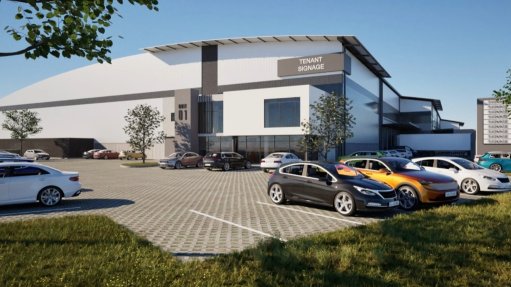Green growth or deep green economy?
The green economy debate has been raging in South Africa for at least five years. ‘Green economy’ is also known as ‘low-carbon transition’, ‘sustainable development’, and so on.
The concept of a ‘green economy’ is not new and one can trace its advent to the 2007/8 financial crisis, during which countries sought to undertake stimulus spending in parts of the economy where it was thought there was some spare capacity for growth and jobs.
Each country has to define the green economy concept for itself and by itself. Sometimes the green economy is like that thing you do not know what it should really look like but you have a feel for it. In South Africa, we have numerous ‘conceptual battles’ regarding what we mean by a green economy but it is still seen as an adjunct issue – something thrown at the economic world by environmentalists. Some think it is an opportunity to redress deep inequality in exclusive minerals-based economies so that an inclusive economy is built, where economic benefits are more widely distributed. But how exactly one addresses this inequality through green grown or a green economy intervention is a question that still needs answers.
So, what kind of green economy makes sense for South Africa? To try something out in this arena, we must have a brief characterisation of our economic situation. Here are few issues that will influence the extent to which a green economy is possible in the interim: we have high unemployment, especially among the youth (the official current unemployment rate has been consistent at 25% to 27% for close to two decades, we are reaching saturation point regarding taxable income, after achieving remarkable success in tax collection, facilitated by the South African Revenue Service, a premier institution with strong tax collection and enforcement capability. Economic development and growth are the only way to get us out of this quagmire, if we are to sustain all the demands on the fiscus and economy. The trend towards a 3% to 4% budget deficit – which some consider to be too conservative – is likely to continue to 2015 and beyond, limiting the extent to which the State can intervene in the development of new economic sectors. Our social welfare and public employment budget is growing and is now close to 50% of the national budget. We are leaning towards spending more on consumption than growing the country’s productive base. Fixed gross domestic investments from both the public and private sectors are the lowest we have seen for two decades. They should be around 25% of gross domestic product but have been less than 20% for a very long time. Finally, our savings rates are appalling, compared with other emerging economies. Debt-to-income ratios are close to 70% and, in some cases, as high as 80%.
The current state of play in the economy holds relevance because it influences the extent to which we can achieve deep green economy interventions. These macroeconomic conditions have influence over the following factors, which are critical for a green economy development or a low-carbon transition, and include:
• Risk/grant money to support new innovations.
• To overcome cost hurdles, we need to find ways to reduce capital costs.
• Long-term infrastructure needs some form of guarantee from government, but government’s ability to grant these will depend on its fiscal health (ability to grow taxes).
Going forward, we must get things right here in South Africa:
• We need to make the old economy more efficient in terms of how we use resources and be more productive so we increase its income potential. Improved income means more taxes and more spending in the economy.
• We need to diversify our energy base so we create opportunities for alternative energy, increase investment flows into this sector and find the means to maintain long-term visibility so as to encourage deep investment and co-benefits in the form of industrial and manufacturing growth. Increased flow of capital to the productive economy is the biggest challenge we face today. Nations cannot progress and sustain their needs if the balance is not shifted.
• We need to find an economic model that allows stronger linkages to be built between the old mining-dependent economy and a new type of economy that talks to this green economy concept. One makes the old economy more efficient and productive using green economy strategies and one builds completely new sectors through new technologies, infrastructure and resource uses to sustain existing jobs, create new jobs and lower dependence on the minerals sector.
A narrow window of opportunity exists for us to undertake meaningful and deep green economy interventions. This will require coordination by government, labour and the private sector. It will require a lot of effort and will not simply emerge by osmosis. This will require better integration of mining into the rest of the economy and, perhaps, a different economic model for mining, given the neglect of social issues that was laid bare by the eruption of labour violence at Marikana.
No green economy growth will happen if we do not fundamentally change the current way of thinking about the economy, the place of mining (which will not solve all our challenges if we are too dependent on it) and the need to diversify our productive economic base.
Article Enquiry
Email Article
Save Article
Feedback
To advertise email advertising@creamermedia.co.za or click here
Announcements
What's On
Subscribe to improve your user experience...
Option 1 (equivalent of R125 a month):
Receive a weekly copy of Creamer Media's Engineering News & Mining Weekly magazine
(print copy for those in South Africa and e-magazine for those outside of South Africa)
Receive daily email newsletters
Access to full search results
Access archive of magazine back copies
Access to Projects in Progress
Access to ONE Research Report of your choice in PDF format
Option 2 (equivalent of R375 a month):
All benefits from Option 1
PLUS
Access to Creamer Media's Research Channel Africa for ALL Research Reports, in PDF format, on various industrial and mining sectors
including Electricity; Water; Energy Transition; Hydrogen; Roads, Rail and Ports; Coal; Gold; Platinum; Battery Metals; etc.
Already a subscriber?
Forgotten your password?
Receive weekly copy of Creamer Media's Engineering News & Mining Weekly magazine (print copy for those in South Africa and e-magazine for those outside of South Africa)
➕
Recieve daily email newsletters
➕
Access to full search results
➕
Access archive of magazine back copies
➕
Access to Projects in Progress
➕
Access to ONE Research Report of your choice in PDF format
RESEARCH CHANNEL AFRICA
R4500 (equivalent of R375 a month)
SUBSCRIBEAll benefits from Option 1
➕
Access to Creamer Media's Research Channel Africa for ALL Research Reports on various industrial and mining sectors, in PDF format, including on:
Electricity
➕
Water
➕
Energy Transition
➕
Hydrogen
➕
Roads, Rail and Ports
➕
Coal
➕
Gold
➕
Platinum
➕
Battery Metals
➕
etc.
Receive all benefits from Option 1 or Option 2 delivered to numerous people at your company
➕
Multiple User names and Passwords for simultaneous log-ins
➕
Intranet integration access to all in your organisation

















